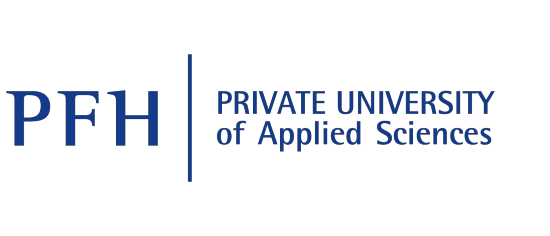
Intakes For Study In Germany: Summer & Winter Deadlines
Did you know Germany boasts over 350,000 international students, making it a top study-abroad destination? This popularity is because of its world-renowned universities, diverse programs, and comparatively low tuition fees from other countries. To study in Germany, international students need to be aware that intake periods at the universities vary depending on the institution and the course of study. Germany admission intake periods thus are crucial for international students planning to study in the country. This blog clarifies the differences between summer and winter intakes so that students can plan better for their studies in Germany.
Intakes In Germany For International Students
Understanding the Germany admission intake schedule can help students prepare ahead and meet deadlines. Germany’s higher education institutions generally offer two primary intakes: the winter intake and the summer intake. The winter intake is the main intake, with most programs starting in October, while the summer intake begins in April.
Winter Intakes In Germany
As we already have mentioned the Germany admission intake system typically includes two main intakes: winter and summer. The winter intake is the most popular and significant intake for study in Germany. It starts in October, and the application deadlines typically range from mid-May to mid-July. Here are some key points about the winter intake:
- Higher Number of Courses: Most universities offer a broader range of courses during the winter intake, making it easier for students to find programs that suit their interests.
- More Competitive: Due to the higher number of applicants, the winter intake tends to be more competitive.
- Optimal for First-Time Applicants: If you are applying to German universities for the first time, the winter intake might be more advantageous due to the wider selection of courses and resources available.
Summer Intakes In Germany
The summer intake is smaller in scale and starts in April. Application deadlines for the summer intake usually fall between mid-November and mid-January. Here are some essential points to be considered about the summer intake:
- Fewer Course Options: The summer intake offers fewer courses compared to the winter intake. However, it is ideal for students looking for specific programs that may not be available in the winter.
- Less Competitive: With fewer applicants, the summer intake can be less competitive, potentially increasing the chances of admission.
- Flexibility for Transfers: The summer intake is particularly suitable for students looking to transfer from other institutions or countries.

Intakes In Germany: Deadlines For 2024-25 Session
Prospective students should carefully research the Germany admission intake dates for their desired programs. For the 2024-25 session, let’s focus on the deadlines for one of the famous private university in Germany like PFH University.
PFH University Deadlines
Winter Intake:
- Application Deadline: July 15 each year
- Semester Start: October 1, each year
Summer Intake:
- Application Deadline: January 15, each year
- Semester Start: April 1, each year
Missing the Germany admission intake deadlines can result in having to wait an entire semester or year to reapply. So, it’s important to check the deadlines for your chosen program as they are liable to change.
How To Choose The Right Intake In Germany
Selecting the right intake depends on several factors, including your readiness, program availability, and personal preferences. Universities often provide detailed information about the Germany admission intake process on their official websites. The following simple tips can help you decide:
- Evaluate Your Readiness: Assess whether you are prepared to meet the application deadlines and requirements, including language proficiency tests like IELTS and gathering necessary documentation.
- Program Availability: Check if your desired program is available in both intakes or only one. Some specialized courses might only be offered in either the winter or summer intake.
- Personal Circumstances: Consider your schedule and commitments. For example, if you need more time to prepare for relocation, the winter intake might give you that extra preparation period.
It is essential to align your application timeline with the Germany admission intake periods to avoid any delays.
Admission Process For Summer And Winter Intakes In Germany 2024
The admission process for study in Germany, whether for summer or winter intake, generally involves the following steps:
- Research and Select Programs: Identify the programs and universities that align with your academic and career goals.
- Check Eligibility: Ensure you meet the eligibility criteria for your chosen program, including academic qualifications and language proficiency (IELTS scores are often required).
- Prepare Documents: Gather all necessary documents, including transcripts, letters of recommendation, a statement of purpose, and proof of language proficiency.
- Submit Application: Complete and submit your application through the university’s online portal before the deadline.
- Admission Decision: Await the admission decision. If your application goes through, they will send an offer letter.
- Apply for a German Visa: Once you have the offer letter, apply for a German study visa. This process involves submitting additional documents such as proof of financial resources and health insurance.
- Enrollment: Upon arrival in Germany, complete the enrollment process at your university.
How To Choose The Best Intake For Masters Courses
Choosing the best intake for a Master’s in Germany depends on various factors, including the specific course requirements, internship opportunities, and career plans. Here are some considerations:
- Internship and Job Opportunities: The timing of your course can impact your ability to secure internships and job opportunities. For example, starting in the winter might align better with the recruiting cycle of many companies.
- Course Duration: Some master’s programs may have a flexible duration. Ensure that the intake you choose allows you to complete your course within the desired timeframe.
- Networking Opportunities: The winter intake might offer more networking opportunities due to the larger number of students and events.
Conclusion
Germany’s education system is designed to accommodate a diverse range of students through its multiple intakes. Knowing the deadlines and requirements for the winter and summer intakes is important for a successful application process. Whether you choose to apply for the winter or summer intake, thorough preparation and timely submission of applications are key to getting admission to your selected program. The admission process for study in Germany as described above involves several steps, including language proficiency tests like IELTS and obtaining a German visa, which require careful planning. Consulting with academic advisors can provide valuable insights into the best Germany admission intake for your specific course of study. By evaluating your readiness, program availability, and personal circumstances, they can help you with the best intake for your academic journey in Germany.
